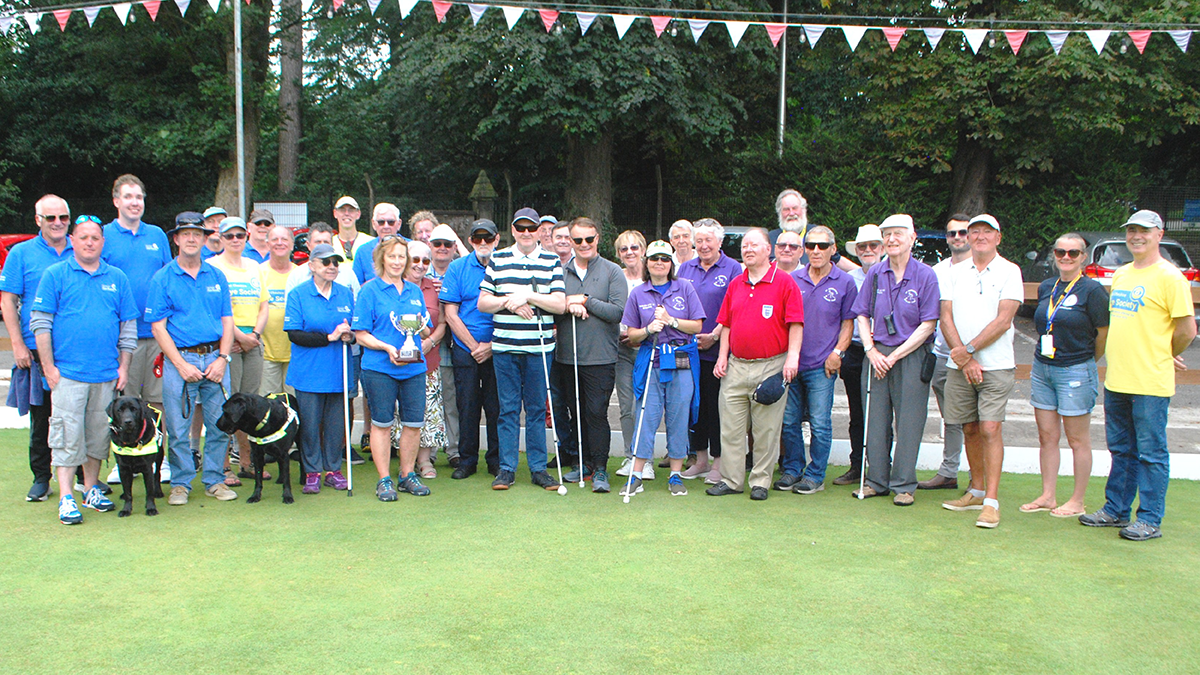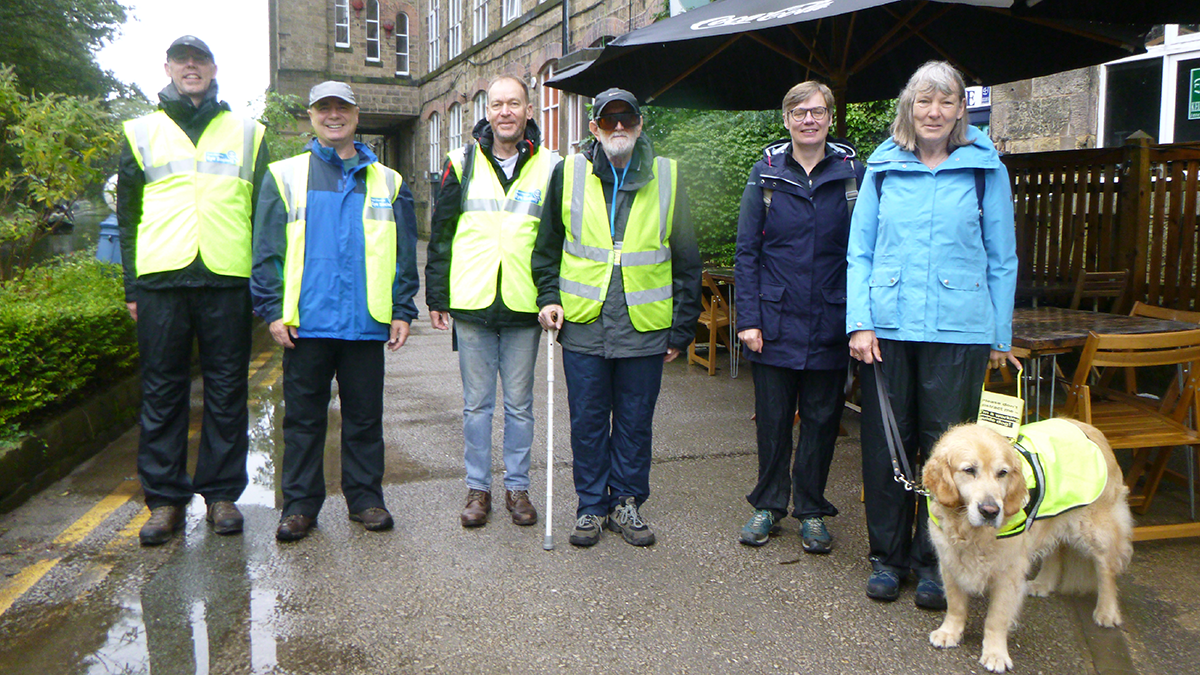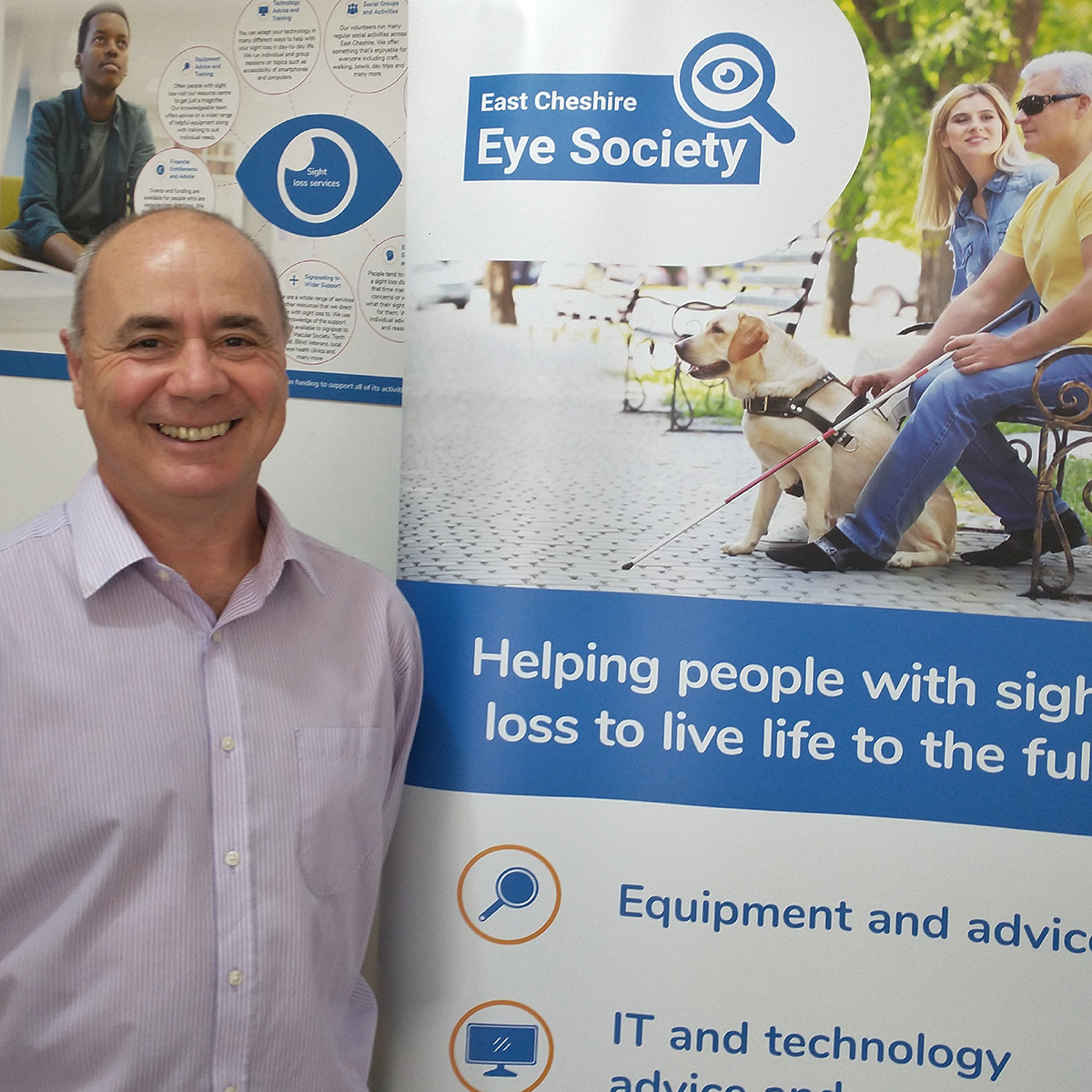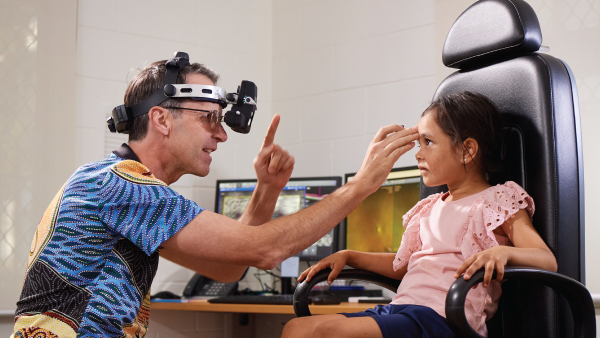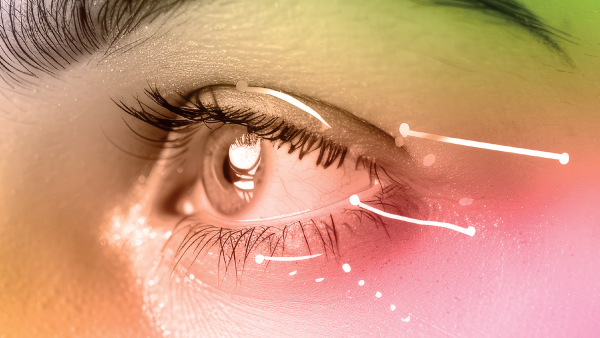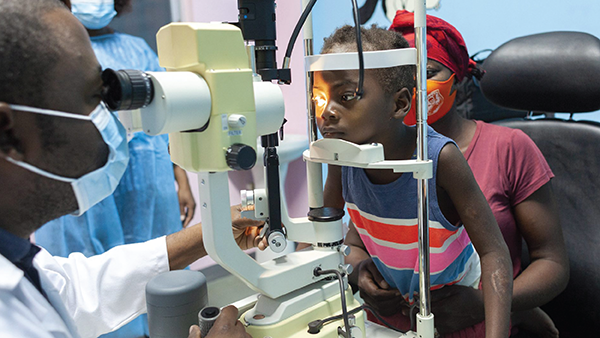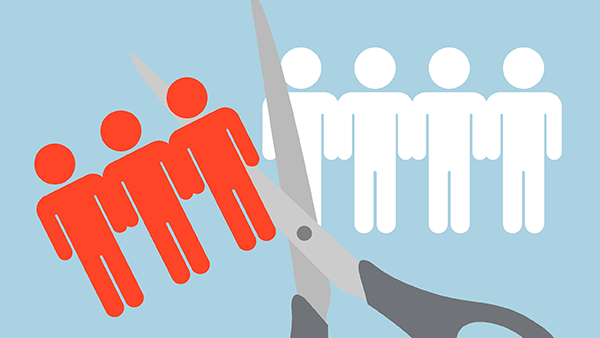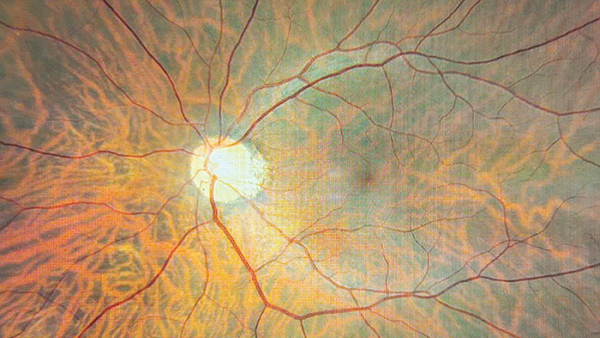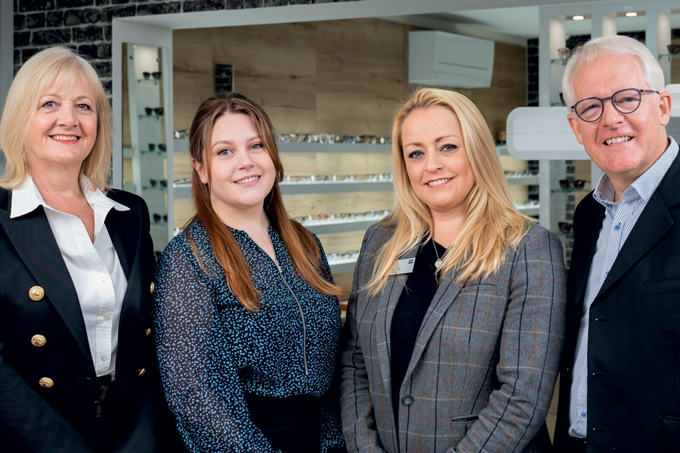Local Heroes
Why the work of the East Cheshire Eye Society – and especially its team of volunteers – is so important
Unless you have a visual impairment – or you’ve experienced it through somebody close to you – it’s hard to imagine the overwhelming impact it can have on day-to-day living. East Cheshire Eye Society (ECES) is an independent charity – with a history dating back to 1875 – that offers support to people who find themselves in this situation. We have only two part-time employees, but we’re supported by a dynamic team of volunteers – without whom we wouldn’t be able to do a lot of what we do.
Our charity is one of many such organizations across the UK, providing vital support to those in need. Some are small, like us; others are much larger – but we’re all independently run. We work closely – but are not affiliated – with national organizations, such as the RNIB. Our overall aim is to enable people affected by sight loss to live life to the full, and – as far as possible – keep doing the things they enjoy doing.
At ECES, we do this in a number of ways. We run regular support group meetings where people can get together, chat, play games, take local trips, or listen to guest speakers. Physical activities, tailored to the individual needs of visually impaired people, are very important; we organize several outdoor pursuits, supported by sighted guides, including our weekly visually-impaired crown green bowling group. And just because people have a visual impairment doesn’t mean they don’t have a sense of adventure – we’ve recently held axe throwing and rock climbing events. I’m delighted to say that everyone survived!
We also make assistive equipment available for visually impaired people. There are many devices that make life a little easier; we make sure people know what they are and how to use them. This equipment ranges from small items – such as liquid level indicators that help when making a hot drink – to things like desktop CCTV equipment.
We also offer assistive technology training. This technology is already built into day-to-day items like smartphones and tablets and it is improving all the time. Most smartphones and tablets have electronic magnifiers built in, for example, so there’s no need to buy expensive magnifiers. Many assistive apps can be downloaded free of charge. Charities like ours give people first-hand knowledge and experience of this technology – or point them to where they can learn about it externally.
Local charities cannot work in isolation. We have developed good links and referral pathways with other local and national charities. We also let local primary, secondary, and social care services know about the support we offer. We try to influence decision-making at a local level, encouraging councils to take account of the needs of visually impaired people when making plans and setting priorities. In this way, we hope to improve the future prospects for anyone living with a visual impairment.
The New Optometrist Newsletter
Permission Statement
By opting-in, you agree to receive email communications from The New Optometrist. You will stay up-to-date with optometry content, news, events and sponsors information.
You can view our privacy policy here
Sign up to The New Optometrist Updates
Permission Statement
By opting-in, you agree to receive email communications from The New Optometrist. You will stay up-to-date with optometry content, news, events and sponsors information.
You can view our privacy policy here
Sign up to The New Optometrist Updates
Permission Statement
By opting-in, you agree to receive email communications from The New Optometrist. You will stay up-to-date with optometry content, news, events and sponsors information.
You can view our privacy policy here
